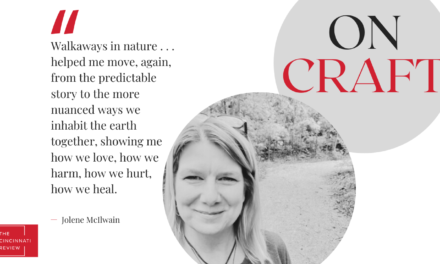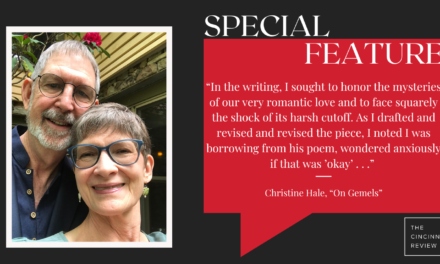 Writers: you still have a bit more than a month to enter our summer contest. We’ve received a bunch of prose submissions (three with the particularly intriguing titles “Oil Spills Remind Me of Him,” “The Claybelle Maniacs,” and “Swimming with Sharks. Or Not.”), but not much in the way of poetry. Maybe all you poets are simply wrestling internally over which pieces in your trove o’ verse are going to knock us out. Hard to give guidance on that. We respond to all subjects, styles, forms (or not). Humor is a great way to capture our attention, but reading over the contributors’ comments on poems in our current issue, I’m struck by how much of what we publish is inspired by tragedy, experienced or imagined. Take the works discussed below. (I should mention that Elizabeth Kerlikowske entered last year’s contest. We ran “The Year of the Rat”—and a number of other entries that were among the finalists—in the prize issue alongside the winner.)
Writers: you still have a bit more than a month to enter our summer contest. We’ve received a bunch of prose submissions (three with the particularly intriguing titles “Oil Spills Remind Me of Him,” “The Claybelle Maniacs,” and “Swimming with Sharks. Or Not.”), but not much in the way of poetry. Maybe all you poets are simply wrestling internally over which pieces in your trove o’ verse are going to knock us out. Hard to give guidance on that. We respond to all subjects, styles, forms (or not). Humor is a great way to capture our attention, but reading over the contributors’ comments on poems in our current issue, I’m struck by how much of what we publish is inspired by tragedy, experienced or imagined. Take the works discussed below. (I should mention that Elizabeth Kerlikowske entered last year’s contest. We ran “The Year of the Rat”—and a number of other entries that were among the finalists—in the prize issue alongside the winner.)
Elizabeth Kerlikowske, “The Year of the Rat”: Writing is a way of chronicling the unspeakable. After my brother murdered a man and took his own life, we did the necessary tasks of slowly dispersing his things. No one spoke of feelings. I chronicled every event. What you read in “A Year of the Rat” is true. I had no idea what zodiac sign my brother was. I’d never eaten Chinese with him, but to find on the day of the final disposal of his belongings that he was a rat. Hmmm. Now, eight months later, sharing my manuscript with selected family has started our conversations.
Josh Kalscheur, “The Girl From Tonoas”: During a weekend I spent on the island of Tonoas, a bunch of kids from the local church group came to sing songs and perform a few organized dances. The priest was there, and many people from the local village came to watch. Among the kids was a girl who had obviously been horribly burned on her face as a child. She was scarred from her chin to her hairline. She was in the front of the dancing group, and she looked directly at me several times throughout the night. In “The Girl from Tonoas” the speaker is trying to imagine the event in which she was burned, in both its sadness and intensity, while also infusing the experience and motion of the dance.
Tim Liardet, “Sky Egg” is one poem in a book-length elegy to my brother (who died in mysterious circumstances and at a very young age), The Storm House, due from Carcanet later this year. The loose couplets in this poem recur throughout the book; they seem to give such subject matter a sort of compulsive, cumulative music. They also point up the dramatic contrasts that exist in this poem. The egg is smooth and perfect and fragile, rich with an unnamed promise; the sky is blue; the climb full of optimism. The blood-freckles on the shell and the wedding dress announce something altogether darker. Such darkness is never far away, but there is always the attempt to offset it with the world’s beautiful surfaces; to balance such darkness with the prospect of a life that might have been lived in a different way.










